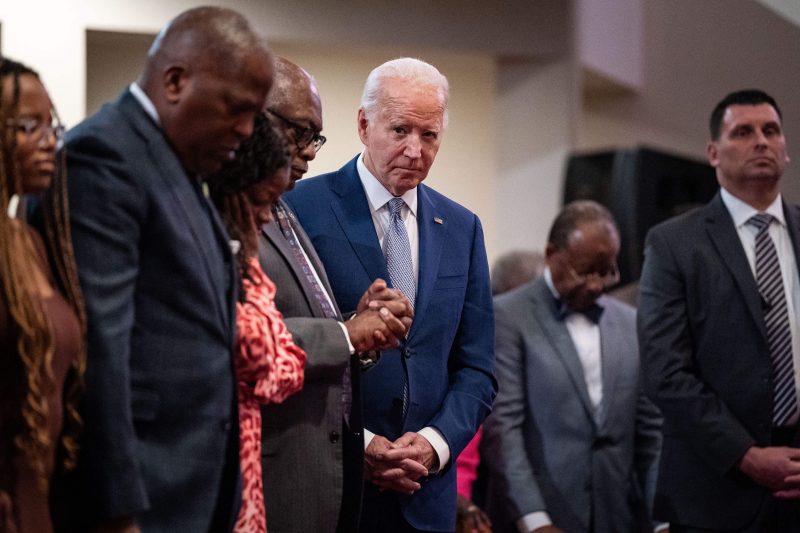In a recent IPSOS poll conducted for the 2024 presidential election, concerning trends have emerged regarding the intentions of Black voters. The data collected indicates a decrease in the percentage of Black voters who plan to participate in the upcoming election compared to previous years. This shift in voter sentiment raises important questions and concerns about the factors influencing this change and the potential impacts it may have on the election outcome.
One key finding from the IPSOS poll is that only 65% of Black voters surveyed expressed their intention to vote in the 2024 presidential election. This figure marks a notable decline from previous election cycles where Black voter turnout played a significant role in determining the outcome. The drop in voter enthusiasm among this demographic group has sparked discussions and analysis on the potential reasons behind this shift.
One plausible explanation for the decrease in Black voter participation could be voter suppression tactics and barriers that disproportionately affect minority communities. The ongoing efforts to restrict access to the ballot, such as strict voter identification laws, purging voter rolls, and limiting early voting options, pose significant challenges for Black voters. These obstacles can create a sense of discouragement and disenfranchisement among potential voters, leading to a decline in voter turnout.
Furthermore, issues related to political representation and the responsiveness of policymakers to the needs of Black communities may also play a role in shaping voter behavior. The perceived lack of progress on critical social justice issues, economic disparities, and systemic racism can erode trust in the political process and dampen voter motivation. Without meaningful engagement and concrete actions from elected officials to address these concerns, Black voters may feel disillusioned with the electoral system.
In addition to external factors, internal dynamics within the Black community may also contribute to the decline in voter participation. Diverse opinions and perspectives exist within any demographic group, and it is essential to recognize the complexity of individual choices when it comes to political engagement. Factors such as apathy, skepticism towards electoral politics, and competing priorities in daily life can all influence whether a person decides to vote or not.
Addressing the challenge of declining Black voter turnout requires a multi-faceted approach that tackles both systemic barriers and community-specific concerns. Efforts to combat voter suppression, expand access to polling locations, and enhance voter education initiatives are crucial steps towards promoting greater inclusivity and participation in the electoral process. Additionally, fostering greater trust and accountability between elected officials and minority communities is essential to rebuilding confidence in the political system.
The findings of the IPSOS poll highlight the evolving dynamics of voter behavior and the importance of addressing the underlying issues that shape electoral outcomes. By understanding the reasons behind the decline in Black voter participation and implementing targeted strategies to address these challenges, we can work towards a more representative and equitable democracy where every voice is heard and every vote counts.
